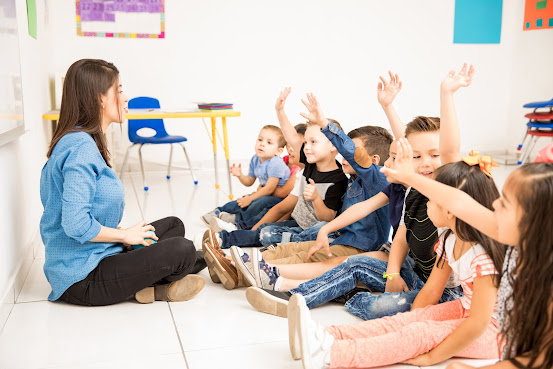Early childhood education (ECE) and preschool teaching are both crucial in laying the foundation for a child’s learning and development. While there may be some overlap between the two, there are also some significant differences. In this article, we’ll explore the differences between ECE and preschool teaching.
After a survey of preschools in Surrey ECE is a broad term that encompasses all forms of education that children receive before entering formal schooling. ECE can include activities such as play-based learning, storytelling, singing, and other interactive activities that help children develop their cognitive, social, emotional, and physical skills. ECE is typically for children aged 0 to 8 years old.
Preschool Teaching:
Preschool teaching, on the other hand, is a more structured and formal type of education that focuses on preparing children for kindergarten and beyond. Preschools are typically for children aged 3 to 5 years old and are designed to provide a more structured learning environment.
Preschool teachers work with children to develop important academic skills such as math, language, and reading. They may also teach social skills, such as sharing, taking turns, and following instructions. Preschool teachers are responsible for developing lesson plans and ensuring that each child is making progress in their learning.
Differences between ECE and Preschool Teaching:
While there is some overlap between the two, the primary difference between ECE and preschool teaching is in the focus of the curriculum. ECE focuses on overall growth and development, while preschool teaching focuses on academic skills and preparing children for formal schooling.
ECE teachers use a range of activities to support children's development, including play-based learning and interactive activities. Preschool teachers, on the other hand, use a more structured curriculum to prepare children for formal schooling.
Another key difference is in the age range of the children. ECE is typically for children aged 0 to 8 years old, while preschool teaching is for children aged 3 to 5 years old.
The Importance of early literacy development in ECE:
Early literacy development is a crucial aspect of early childhood education (ECE) as it sets the foundation for lifelong learning. Early literacy involves developing the skills and knowledge needed to read and write, including phonological awareness, vocabulary, letter recognition, and comprehension. In this article, we will discuss the importance of early literacy development in ECE.
Language Development-
Early literacy development is linked to language development. When young children are exposed to language-rich environments, they have the opportunity to develop their vocabulary, grammar, and syntax. These language skills, in turn, provide a strong foundation
for reading and writing.
Social-Emotional Development-
Early literacy activities, such as shared reading and storytelling, also support social-emotional development. Children learn important social skills, such as turn-taking, active listening, and empathy, which are critical for building positive relationships with others.
Parental Involvement-
Developing early literacy skills also requires parental involvement. Parents can read to their children, provide a print-rich environment, and engage in language-rich activities with their children to support their literacy development.
The Role of Technology in early childhood education:
Enhancing Learning Experiences: Technology can provide interactive and engaging learning experiences that can enhance a child's understanding of a concept. For example, educational apps and games can help children learn new vocabulary, math concepts, and other skills in a fun and interactive way.
Customized Learning-
Technology can provide customized learning experiences that cater to the unique needs and interests of each child. Educational software can adapt to a child's skill level, providing challenges that are appropriate for their abilities.
Accessibility-
Technology can provide access to education for children who may face physical, cognitive, or developmental challenges. Assistive technology, such as text-to-speech and speech-to-text software, can help children with disabilities to access and interact with learning materials.
Digital Literacy-
As technology continues to advance, it has become increasingly important for children to develop digital literacy skills. Early exposure to technology can help children develop these skills and prepare them for the digital world they will encounter in their academic and professional lives.
Parental Involvement-
Technology can also support parental involvement in their child's education. Parents can use educational apps and software to support their child's learning at home, which can lead to stronger parent-child relationships and greater academic success.
Conclusion:
Early childhood education (ECE) and preschool teaching are both critical in laying the foundation for a child's learning and development. While there may be some overlap between the two, the primary difference lies in the focus of the curriculum and the age range of the children.
ECE focuses on overall growth and development, helping children develop their cognitive, social, emotional, and physical skills. If you are focusing on the overgrowth of your child then should admission your kid to Montessori Preschool in Surrey.
ECE teachers create curricula that are age-appropriate and cater to the specific needs and interests of each child. The age range for ECE is typically from 0 to 8 years old.





No comments:
Post a Comment